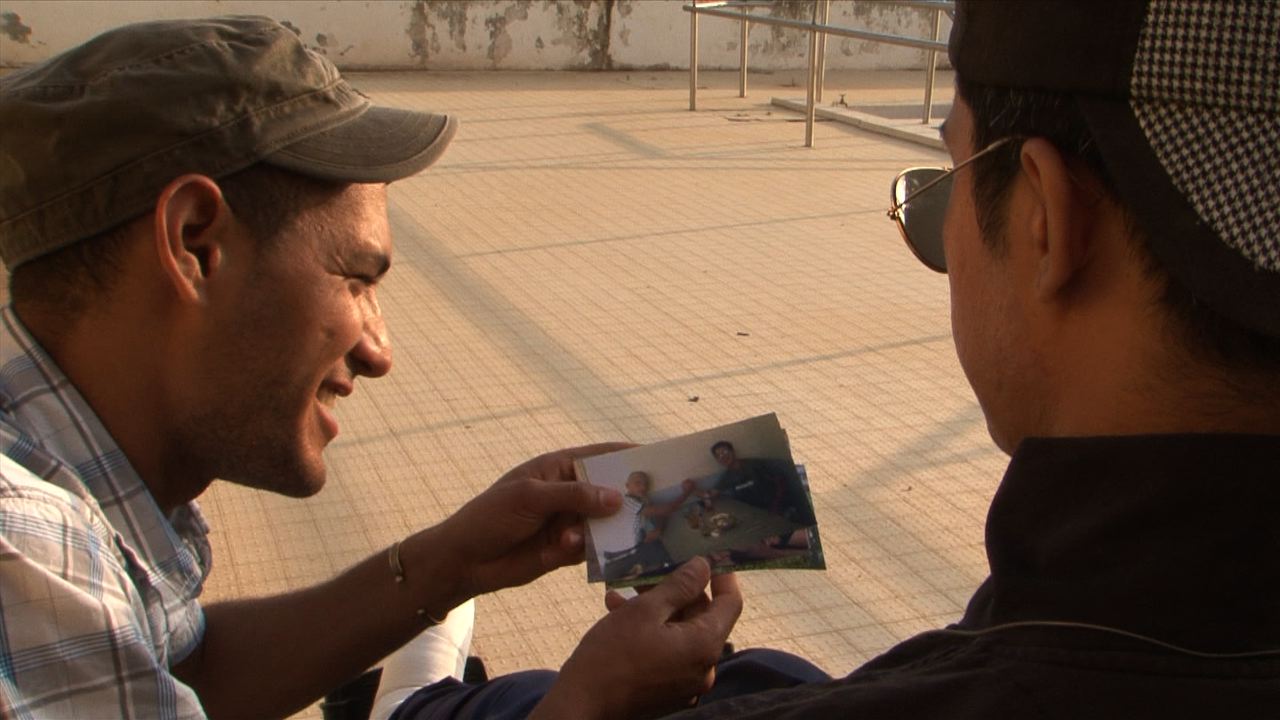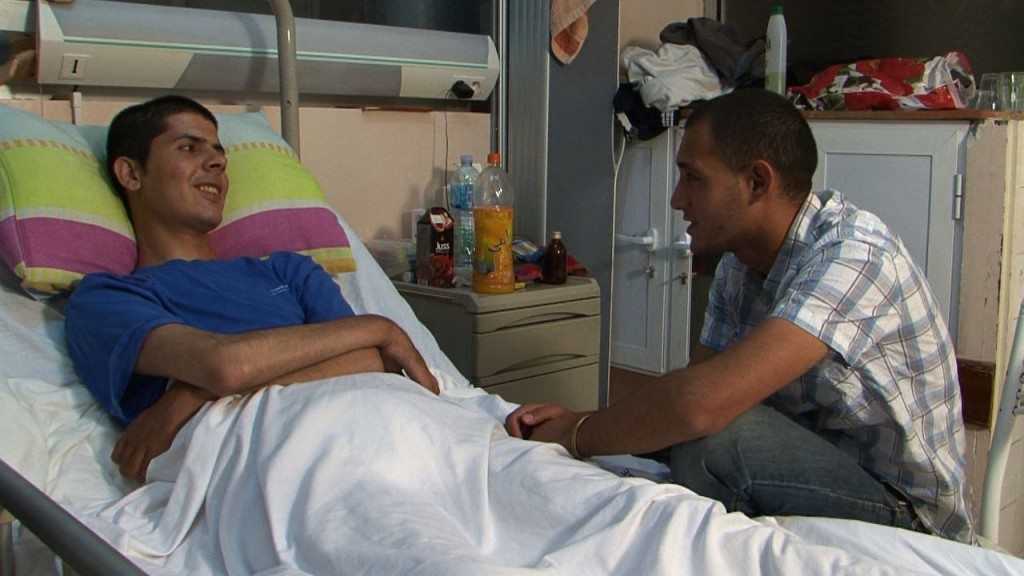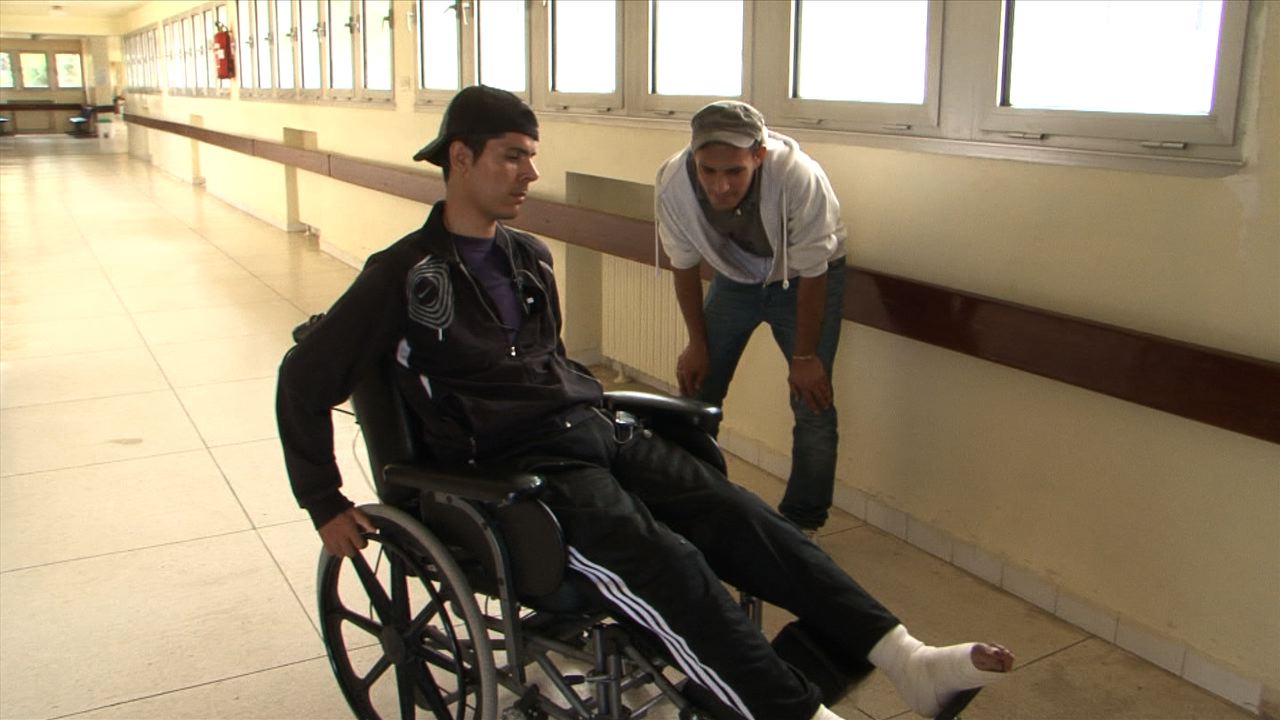The Bejaia Doc collective, founded by documentary filmmaker Habiba Djahine, helps young Algerians to make their first films and to express themselves about society. Heureusement que le temps passe (Time Passes, Fortunately or Madjid’s Story as the film is called in English) is a documentary by Ferhat Mouhali, a graduate in economics and actor who lives in Bejaia.
Madjid is a 26-year-old, very promising, Algerian. After a BA in management from the University of Bejaia, this young Kabyle starts working for a foreign company. On the way back from the football match between Algeria and Serbia on March 3, 2010, a car accident sends him right to the Tizi-Ouzou hospital. Despite being initially 80 percent paralysed, he doesn’t undergo emergency surgery. The wound on his scalp, which is improperly sutured, quickly gets infected. This leads him to end up hospitalised for eight months, with bed-sores forming on his sides and knees. His paralysis worsens. Madjid then decides to move to the Azur Plage hospital in Algiers, purportedly the best in the country, for rehabilitation. But seven months later, and with no improvement in sight, he moves back home, where his family and friends are now taking care of him.
Madjid’s story, which is not uncommon in Algeria, has been recorded by his friend Ferhat Mouhali in the film with the same name. Ferhat, 25, is the former secretary-general of the Bejaia branch of the national youth association RAJ (Rassemblement Actions Jeunesse) and an activist working for students’ rights and the Kabyle cause. He is also a member of the Bejaia Doc collective, from the class of 2011. “Every day, I was with Madjid at the hospital, and what I saw there shocked me,” remembers Ferhat. “You can’t fight for jobs and housing on the one hand, and at the same time let this happen. Every Algerian is entitled to quality health care. It’s a matter of life or death.”

During 20 days, Ferhat was filming his friend in various situations: stuck in his hospital bed, laughing with his friends, trying to use a pen despite the paralysis of his hands. But the images are not calling on the viewer to pity Madjid. They are just portraying the daily life of a young man, impaired by his own body and by the healthcare system of his country. “It’s not only that the absence of care is totally revolting,” adds Ferhat, “on top of that, it’s as if Algeria has failed him. It’s as if he was being told ʻstay in your bed and shut upʼ. This is the point I want to make with my film. But I also want to show how Madjid remains pugnacious and positive despite all that has happened to him.”
In one scene, Ferhat is seen playing football with his friend in a wheelchair. In another, he trains Madjid in a rehabilitation session under the empty gaze of a bored nurse. “I decided to appear next to him in the film, because we are fighting together and Madjid is more comfortable when I’m at his side. I just couldn’t leave Madjid alone in front of the camera,” says Ferhat. In what stands out as the strongest scene of the film, Madjid seizes the video camera, points it at one of the clocks on the hospital wall and zooms in. In the film, Madjid says: “You know, I want to record that because fortunately, time passes, and us with it.”
Heureusement que le temps passe is part of the Youth International Forum‘s selection and will be screened together with other international documentary films in Salé, Morocco, this weekend. It will also be screened in France during the upcoming months, along with other Bejaia Doc films produced in 2011. Currently, Ferhat Mouhali works on a new documentary film project, focusing on the corner stones of Algeria’s past history. “This film enabled me to engage in activism differently, independently,” concludes the film maker. “I hope to continue this way.”




